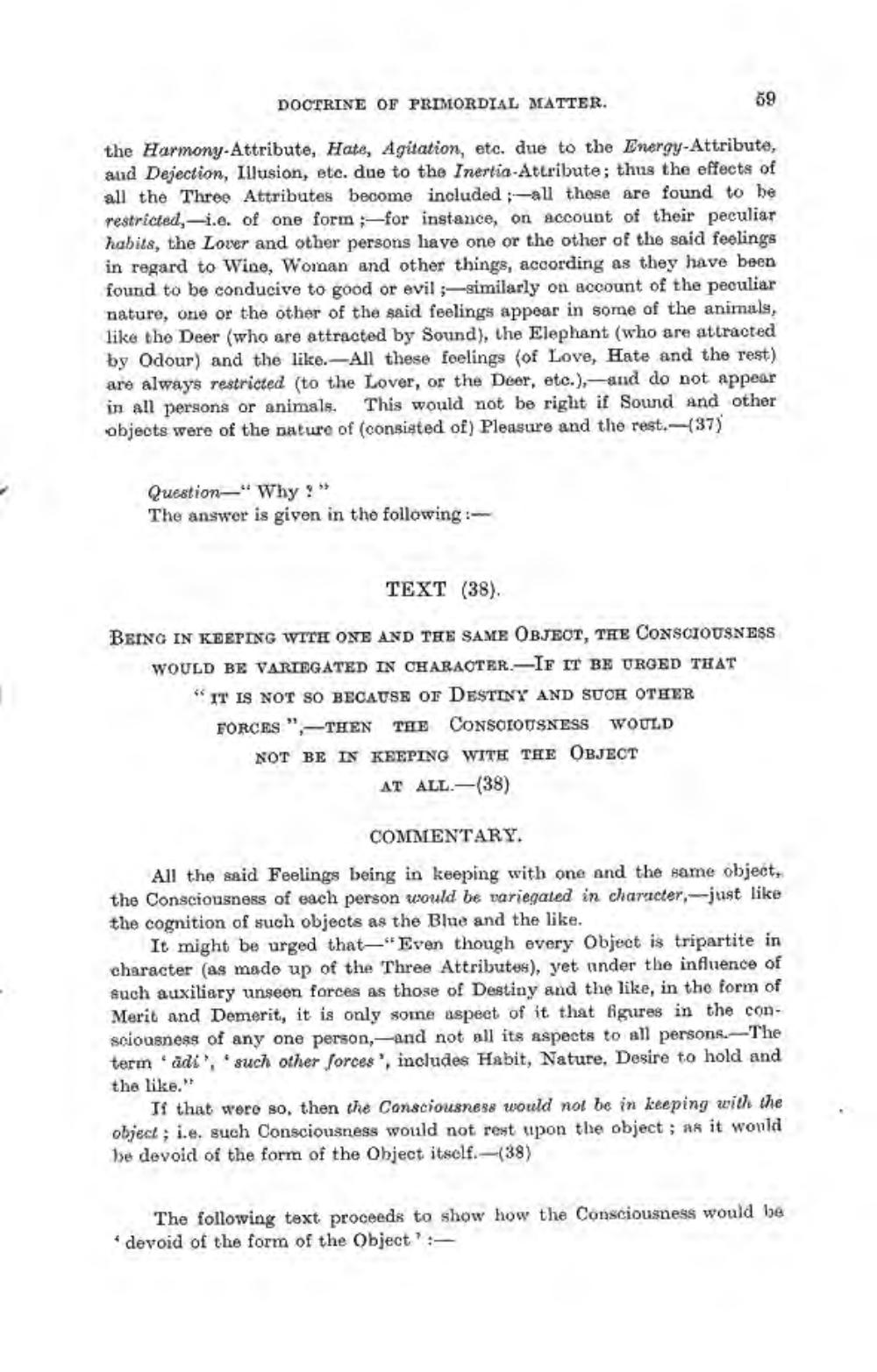________________
DOCTRINE OF PRIMORDIAL MATTER.
69
the Harmony-Attribute, Hate, Agitation, etc. due to the Energy Attribute, aud Dejection, Illusion, etc. due to the Inertia-Attribute; thus the effects of all the Three Attributes become included all these are found to be restricted, -i.e. of one form for instance, on account of their peculiar habits, the Lover and other persons have one or the other of the said feelings in regard to Wine, Woman and other things, according as they have been found to be conducive to good or evil ;-similarly on account of the peculiar nature, one or the other of the said feelings appear in some of the anirnals, like the Deer (who are attracted by Sound), the Elephant (who are attracted by Odour) and the like.-All these feelings of Love, Hate and the rest) are always restricted (to the Lover, or the Deer, etc.),—and do not appear in all persons or animals. This would not be right if Sound and other objects were of the nature of (consisted of) Pleasure and the rest.-(37)
Question-"Why?" The answer is given in the following:
TEXT (38)
BEING IN KEEPING WITH ONE AND THE SAME OBJECT, THE CONSCIOUSNESS WOULD BE VARIEGATED IN CHARACTER.-IF IT BE URGED THAT
"IT IS NOT SO BECAUSE OF DESTINY AND SUCH OTHER FORCES",-THEN THE CONSCIOUSNESS WOULD NOT BE IN KEEPING WITH THE OBJECT
AT ALL.-(38)
COMMENTARY.
All the said Feelings being in keeping with one and the same object, the Consciousness of each person would be variegated in character, just like the cognition of such objects as the Blue and the like.
It might be urged that—"Even though every Object is tripartite in character (as made up of the Three Attributes), yet under the influence of such auxiliary unseen forces as those of Destiny and the like, in the form of Merit and Demerit, it is only some aspeet of it that figures in the consciousness of any one person-and not all its aspects to all persons. The term 'adi, such other forces, includes Habit, Nature, Desire to hold and the like.
If that were so, then the Consciousness would not be in keeping with the object; i.e. such Consciousness would not rest upon the object; as it would Ise devoid of the form of the Object itself.-(38)
The following text proceeds to show how the Consciousness would be * devoid of the form of the Object':




